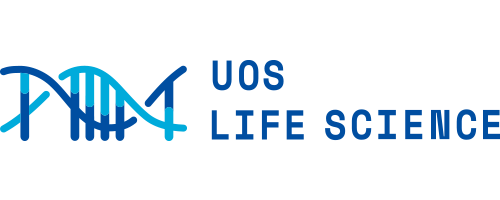Research introduction
[Unraveling the Intricate Interplay of Host-Virus Interactions]
We are pursuing to study the complex interactions between host and viruses, and their profound implications for human health and disease.
Host-virus interactions form a fascinating and complex battleground where the relationship between invading viruses and the host immune defense system shapes the outcome of infections. The interplay between a viral pathogen and its host organism involves a myriad of intricate molecular and cellular processes that govern viral entry, replication, immune evasion, and host immune activation. Understanding the underlying mechanisms driving these interactions is paramount for advancing our knowledge of virology and developing effective strategies to combat viral infections.
Our core mission rests on three fundamental pillars:
(1) Investigating the intricate roles of exosomes in viral infection and shedding light on their involvement in viral dissemination, immune regulation, and disease progression
(2) Identifying and characterizing key host factors that restrict viral replication
(3) Identifying viral strategies to manipulate host cellular system to evade immune surveillance
We are pursuing to study the complex interactions between host and viruses, and their profound implications for human health and disease.
Host-virus interactions form a fascinating and complex battleground where the relationship between invading viruses and the host immune defense system shapes the outcome of infections. The interplay between a viral pathogen and its host organism involves a myriad of intricate molecular and cellular processes that govern viral entry, replication, immune evasion, and host immune activation. Understanding the underlying mechanisms driving these interactions is paramount for advancing our knowledge of virology and developing effective strategies to combat viral infections.
Our core mission rests on three fundamental pillars:
(1) Investigating the intricate roles of exosomes in viral infection and shedding light on their involvement in viral dissemination, immune regulation, and disease progression
(2) Identifying and characterizing key host factors that restrict viral replication
(3) Identifying viral strategies to manipulate host cellular system to evade immune surveillance
Education
- 2014 Friedrich-Alexander-University Erlangen-Nürnberg, Ph.D. in Molecular Virology and Cancer Biology
- 2008 Ewha Womans University, M.S. in Cancer Biology
- 2006 Ewha Womans University, B.S. in Life Sciences
Career
- 2022. 03 - present: Department of Life Science, University of Seoul, Assistant Professor
- 2021. 02 - 2022. 02: Institute of Molecular Virology, Ulm University, Project Leader
- 2020. 07 - 2020. 12: Department of Microbiology, Cleveland Clinic Florida, Research Assistant Professor
- 2018. 05 –2020. 06: Department of Microbiology, The University of Chicago, Postdoctoral Scholar
- 2016. 10 – 2018. 04: Universitätsklinikum Erlangen, Junior Group Leader
- 2014 .03 – 2016. 09: Universitätsklinikum Erlangen, Postdoctoral Fellow
Papers
- [2022.03] Lee JH., Ostalecki C., Oberstein T., Schierer S., Zinser E., Eberhardt M., Blume K., Plosnita B., Stich L., Bruns H., Coras R., Vera-Gonzales J., Maler M., Baur AS. Alzheimer's disease protease-containing plasma extracellular vesicles transfer to the hippocampus via the choroid plexus. EBioMedicine, 77:103903.
- [2021.03] Liu G.*, Lee JH.*, Parker ZM., Acharya D., Chiang J., van Ghent M., Chiang J., Riedl W., Davis ME., Wies E., Chiang C., Gack MU. ISG15-dependent activation of the sensor MDA5 is antagonized by the SARS-CoV-2 papain-like protease to evade host innate immunity. Nature Microbiology, 6(4):467-478. (*Co-first authorship)
- [2019. 10] Riedl W., Acharya D., Lee JH., Liu G.,Serman T., Chiang C., Chan YK., Diamond MS., Gack MU. Zika Virus NS3 Mimics a Cellular 14-3-3-Binding Motif to Antagonize RIG-I- and MDA5-Mediated Innate Immunity. Cell Host & Microbe, 26(4):493-503. [2017. 05] Lee JH.*, Ostalecki C.*, Wittki S., Dindorf J., Collenburg L., Schierer S., Simon B., Schliep S., Kremmer E., Schuler G., Baur AS. Multi-Epitope Tissue Analysis Reveals SPPL3-mediated ADAM10 Activation as a Key Step in the Transformation of Melanocytes. Science Signaling, 10, 470. (*Co-first authorship)
- [2013. 02] Lee JH., Wittki S., Bräu T., Dreyer F.S., Krätzel K., Dindorf J., Johnston I.C., Gross S., Kremmer E., Zeidler R., Schlötzer-Schrehardt U., Lichtenheld M., Saksela K., Harrer T., Schuler G., Federico M., Baur AS. (2013) HIV Nef, paxillin, and Pak1/2 regulate activation and secretion of TACE/ADAM10 proteases. Molecular Cell, 49(4):668-79.



